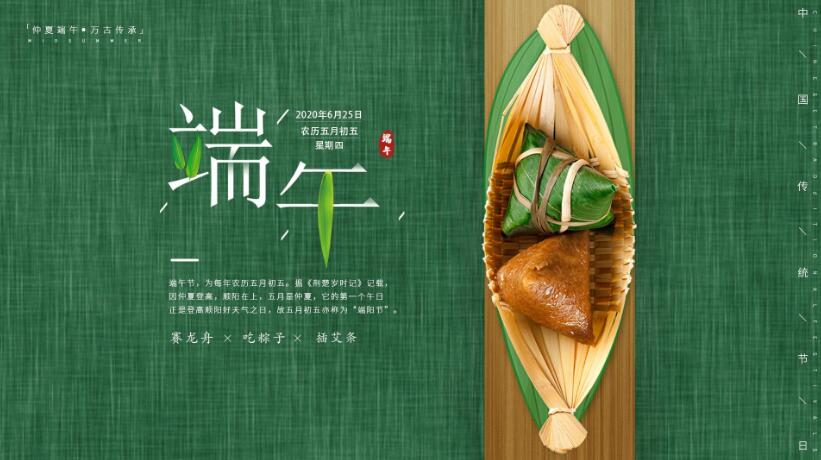Dragon Boat Festival, also known as Duanyang Festival and Dragon Boat Festival, is one of the traditional folk festivals in my country. It is celebrated on the fifth day of the fifth month of the lunar calendar, so it is also called "May Festival". The Dragon Boat Festival originated in ancient China and is related to the poet Qu Yuan. According to legend, Qu Yuan was a patriotic poet and statesman during the Warring States Period in China. Because of disagreement with the political situation at that time, he was forced into exile, and finally committed suicide by throwing himself into the river. To commemorate his death, people rowed into the river, hoping to preserve his body. In order to prevent the fish and shrimp from biting Qu Yuan's body, they also threw zongzi to deceive the fish and shrimp. In this way, every May 5th, people start to row dragon boats and eat rice dumplings. The Dragon Boat Festival has many traditional customs, the most notable of which is the dragon boat race.
 A dragon boat is a long, narrow boat, usually made of bamboo, decorated with colorful dragon heads and tails. During the competition, the dragon boat team will paddle with all their strength, strive for speed and coordination, and strive to achieve the best results in the competition. In addition, people hang wormwood and calamus to drive away evil spirits and diseases. The day before the Dragon Boat Festival, there is another traditional food called "Zongzi". Zongzi is stuffed with glutinous rice, beans, meat, etc., wrapped in bamboo leaves, tied tightly with string and steamed. They are usually diamond-shaped or oblong, and different regions have different flavors. The Dragon Boat Festival is a festival that symbolizes auspiciousness and reunion, and is also an important part of Chinese culture. On this day, people get together with relatives and friends, taste delicious food, watch dragon boat races, and feel the strong traditional Chinese cultural atmosphere. The festival was listed as one of UNESCO's intangible cultural heritage masterpieces in 2017, demonstrating the unique charm and influence of Chinese culture.
A dragon boat is a long, narrow boat, usually made of bamboo, decorated with colorful dragon heads and tails. During the competition, the dragon boat team will paddle with all their strength, strive for speed and coordination, and strive to achieve the best results in the competition. In addition, people hang wormwood and calamus to drive away evil spirits and diseases. The day before the Dragon Boat Festival, there is another traditional food called "Zongzi". Zongzi is stuffed with glutinous rice, beans, meat, etc., wrapped in bamboo leaves, tied tightly with string and steamed. They are usually diamond-shaped or oblong, and different regions have different flavors. The Dragon Boat Festival is a festival that symbolizes auspiciousness and reunion, and is also an important part of Chinese culture. On this day, people get together with relatives and friends, taste delicious food, watch dragon boat races, and feel the strong traditional Chinese cultural atmosphere. The festival was listed as one of UNESCO's intangible cultural heritage masterpieces in 2017, demonstrating the unique charm and influence of Chinese culture.
Post time: Jun-20-2023




